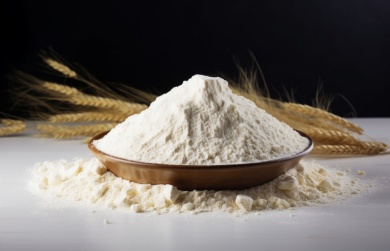Here are some healthy potato options: Which potatoes are healthiest?
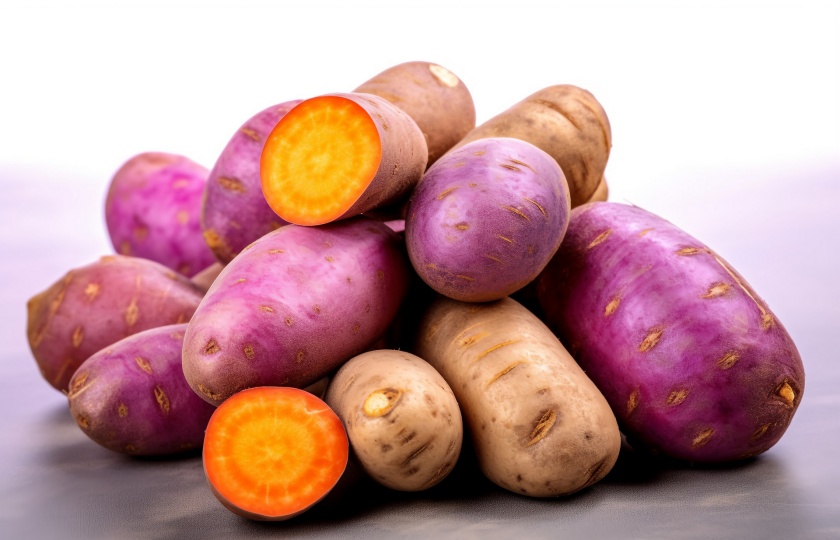
There are many varieties of potatoes, such as purple potatoes and yellow-skinned potatoes. Which kind of potato is the healthiest? Today, let's explore the knowledge about potatoes together!
Which potatoes are healthiest?
Different kinds of potatoes have certain differences in nutritional components, and each kind of potato has its unique advantages. Here is a detailed introduction for you:
Purple potato: Purple potato is regarded as one of the healthiest potato varieties, mainly because it contains rich anthocyanin. Anthocyanin is a powerful antioxidant, which helps resist aging, reduce inflammation and enhance immunity.
Purple potatoes also have a very high content of dietary fiber. Eating an appropriate amount is extremely beneficial to intestinal health. Compared with other potatoes, purple potatoes have a lower glycemic index and are suitable for diabetic patients.
Red-skinned potato: The skin of red-skinned potatoes contains a large amount of flavonoids, which is very good for heart health. Compared with white potatoes, red-skinned potatoes have a slightly higher potassium content, which helps maintain normal blood pressure levels. The skin of red-skinned potatoes is also rich in dietary fiber, which can promote digestion and help control blood sugar levels.
Yellow potato: Yellow potatoes have a soft texture and are suitable for making mashed potatoes and French fries. It has a relatively high calorie and carbohydrate content, but at the same time it also contains rich vitamin C and B6. Although yellow potatoes do not contain as rich antioxidant substances as purple potatoes, they still have certain nutritional value and are suitable for daily consumption.
White potato: White potatoes are the most common type of potato. They contain more starch and have relatively lower nutritional value. However, they can still provide essential vitamin C, potassium and dietary fiber. They are suitable as staple foods, especially in low-fat and low-calorie diets. White potatoes have a relatively high glycemic index, so if you are controlling your weight or sugar intake, you may need to eat them in moderation.
Summary:
If considering from the perspective of oxidation resistance, nutritional density and health, purple potatoes are undoubtedly the healthiest choice. They are not only rich in antioxidant substances, but also beneficial to protecting cardiovascular health and enhancing the immune system. Red-skinned potatoes are also a very healthy option. Especially for heart health, their antioxidant effect should not be underestimated.
Of course, the health value of potatoes is also related to your cooking method. Choose low-oil methods such as steaming, boiling and baking as much as possible, and avoid frying, so as to retain the nutritional components of potatoes to the greatest extent.
Which type of potato has the lowest calories?
Red-skinned potato: The calorie content of red-skinned potatoes is usually relatively low. About 70 calories are contained in every 100 grams of red-skinned potatoes. At the same time, red-skinned potatoes have a moderate starch content, which can provide sufficient energy but not too high. It is very good in a calorie-controlled diet.
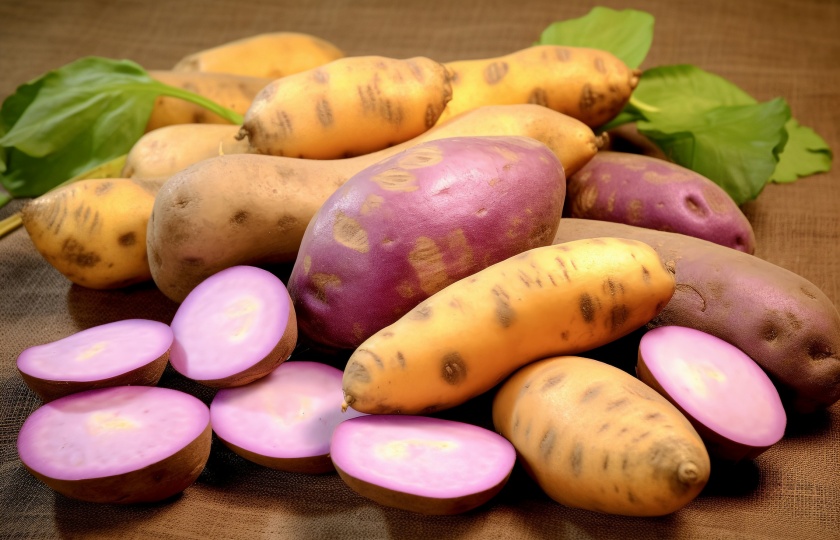
Purple potato: The calorie content of purple potatoes is similar to that of red-skinned potatoes. Usually about 70 - 80 calories are contained in every 100 grams of purple potatoes. Although purple potatoes contain more antioxidant ingredients, their calorie content will not be much higher than that of other potatoes. If you want to optimize your diet by adding antioxidant substances, purple potatoes are an extremely good choice.
White potato: The calorie content of white potatoes is relatively slightly higher. About 77 calories are contained in every 100 grams of white potatoes. However, this gap is not very large. The starch content of white potatoes is relatively high. Although their calorie content is slightly higher than that of purple or red-skinned potatoes, their nutritional components are still of great value, especially the potassium, vitamin C and dietary fiber they provide.
Small potato (mini potato): Small potatoes usually have a slightly lower calorie content. Because they have a larger proportion of skin and are rich in more dietary fiber, they help enhance satiety and reduce calorie intake. About 60 - 70 calories are contained in every 100 grams of small potatoes.
In general, red-skinned potatoes and purple potatoes have the lowest calorie content, both containing about 70 calories per 100 grams. Although white potatoes have a slightly higher calorie content, the gap is not large. If you are concerned about a low-calorie diet, try to choose steaming, boiling or baking potatoes and avoid frying so as to minimize calorie intake.
Which potatoes are lowest in carbs?
Red-skinned potatoes: Red-skinned potatoes are low in carbohydrates. Red-skinned potatoes contain about 15-16 grams of carbohydrates per 100 grams. Suitable for people who control their carbohydrate intake.
Purple potatoes: The carbohydrate content of purple potatoes is in the medium range, with about 16-17 grams of carbohydrates per 100 grams of purple potatoes.
White potatoes: White potatoes have a slightly higher carbohydrate content, about 17-18 grams of carbohydrates per 100 grams of white potatoes. White potatoes are high in starch, which is why they are relatively high in calories and carbohydrates.
Small potatoes (mini potatoes) : Small potatoes have a similar carbohydrate content to red-skinned potatoes, with approximately 16-17 grams of carbohydrates per 100 grams of small potatoes. Small potatoes are usually thin skinned and contain more dietary fiber, which not only helps reduce the absorption of carbohydrates, but also increases the feeling of fullness.
If you look at the carbohydrate content alone, red potatoes and small potatoes are usually the potatoes with the lowest carbohydrate content, about 15-16 grams of carbohydrate per 100 grams. Purple potatoes and white potatoes have relatively higher carbohydrate content, but the difference is not significant.
Are Yukon Gold potatoes lower in carbs?
The carbohydrate content of Yukon Gold potatoes is not too low. It belongs to the potato type with relatively high starch. About 17 - 18 grams of carbohydrates are contained in every 100 grams of Yukon Gold potatoes, which is similar to that of white potatoes and red-skinned potatoes.
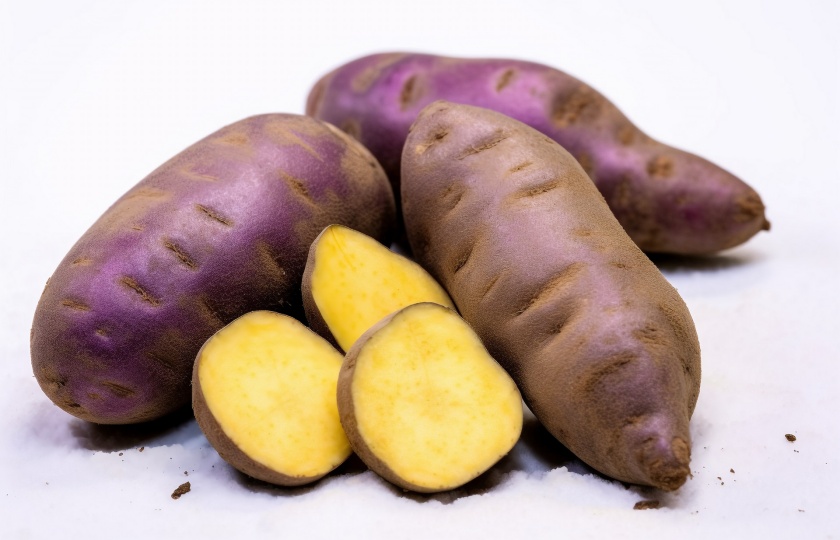
The carbohydrates in Yukon Gold potatoes mainly come from starch, and starch is converted into sugar after digestion to provide energy. Therefore, it can be known that the carbohydrate content of Yukon Gold potatoes is not low. If you are controlling carbohydrate intake, Yukon Gold potatoes may not be the most ideal choice.
But Yukon Gold potatoes are a very delicious and nutritious potato variety. They are rich in dietary fiber, potassium and vitamin C, and are also of great benefit to physical health.
Can I eat a potato on a low carb diet?
Potatoes are typical high-carbohydrate foods. About 17 - 18 grams of carbohydrates are contained in every 100 grams of potatoes, mainly from starch.
In daily life, the status of potatoes in a low-carbohydrate diet is often "restricted food". Especially in diet methods that strictly limit carbohydrates such as ketogenic diet and Atkins diet, potatoes are usually avoided.
If you are following a relatively loose low-carbohydrate diet (such as controlling carbohydrate intake but not completely eliminating it), you can still eat potatoes in moderation. However, pay attention to controlling the portion to prevent excessive intake of carbohydrates at one time. For example, you can choose a small portion of potatoes and eat them with low-carb vegetables to reduce postprandial blood sugar fluctuations.
In addition, the cooking method will also affect the carbohydrate intake of potatoes. Steaming, baking or boiling potatoes is healthier than frying potatoes, avoiding additional oil and calories. And in cooled potatoes (such as when making potato salad), some of the starch will be converted into resistant starch. This kind of starch has a slower digestion rate and has a relatively smaller impact on blood sugar.
What are the best potatoes for diabetics to eat?
When diabetic patients choose potatoes, the most important considerations are the glycemic index (GI) and carbohydrate content. Foods with a lower glycemic index have a smaller impact on blood sugar and are more suitable for diabetic patients. In contrast, foods with a high glycemic index will rapidly increase blood sugar and may cause blood sugar fluctuations, which is not ideal for diabetic patients. The following potato varieties are suitable for diabetic patients:
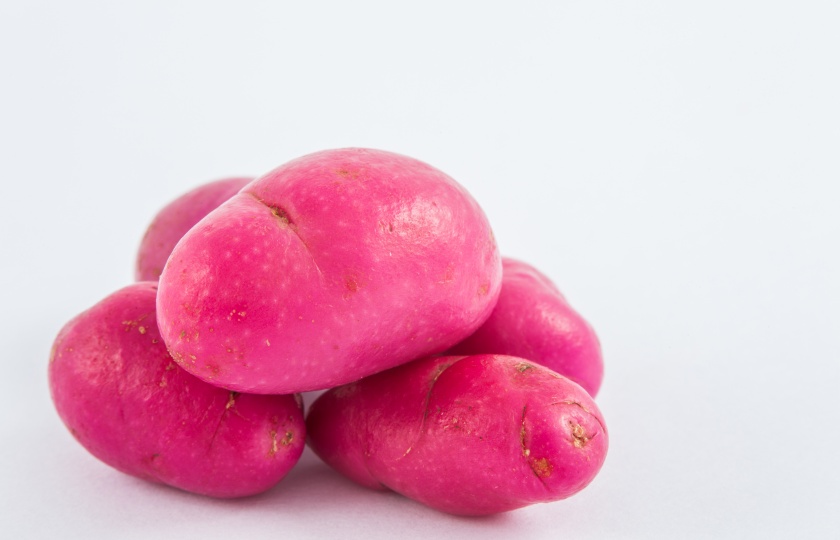
Purple potato: Purple potatoes are rich in nutrition and contain a large amount of antioxidants (such as anthocyanin). The glycemic index is relatively low. About 16 - 17 grams of carbohydrates are contained in every 100 grams of purple potatoes. Compared with other potatoes, purple potatoes are a relatively ideal choice for diabetic patients. Its low GI can help release sugar slowly and help control blood sugar levels.
Red-skinned potato: Red-skinned potatoes are also a good choice for diabetic patients. About 15 - 16 grams of carbohydrates are contained in every 100 grams of red-skinned potatoes. Red-skinned potatoes have a relatively low glycemic index and will not rapidly increase blood sugar.
Small potato (mini potato): Small potatoes have a relatively moderate carbohydrate content and are rich in dietary fiber, which can effectively control blood sugar levels. The carbohydrate content of every 100 grams of small potatoes is usually 15 - 16 grams, which is suitable for diabetic patients to eat in moderation when controlling carbohydrate intake.












